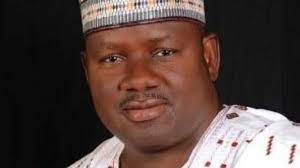The Statistician General of the Federation and Chief Executive Officer of the National Bureau of Statistics (NBS), Dr. Simon Harry, on Thursday described the National Agricultural Sample Census (NASC) which is about to be conducted by the agency as key to ongoing drive by the government to achieve food security and reduce the nation’s yearly food import bill to the barest minimum
The Statistician General made this remark in his welcome address at the Sensitization Workshop for the National Agricultural Sample Census (NASC) organized by the Bureau in collaboration with the World Bank and Food and Agriculture Organization (FOA) in Abuja.
Harry, who elaborately spoke on the contributions of the agricultural sector to the nation’s economy over the years, especially its job creation and foreign exchange benefits, explained that the NASC was designed to produce vital primary data on the structural composition and operations of the sector with a view to using the data for policy formulation and implementation by the governments.
“On completion of the census, the results will also form a statistical framework for the conduct of subsequent agricultural surveys in Nigeria, capturing all aspects, including crop production, livestock, poultry, fishery and forestry.
“It is pertinent to mention that as part of the planning and preparation for the census, the NBS, in collaboration with the World Bank and FAO, has been working assiduously to develop a comprehensive strategy for implementing this important national project.
“Part of the design is a communication strategy aimed at effectively informing all relevant stakeholders about the conduct of the exercise. In this connection, the conduct of today’s sensitization workshop is a crucial part of the communication strategy designed for the project.
“In order to ensure the success of the census, it is necessary that people are adequately sensitized, mobilized and instilled with a high sense of consciousness about its importance and the need for their cooperation”, Harry added.
In view of the project’s criticality to Nigeria’s sustainable economic growth, he urged the participants at the workshop to contribute meaningfully to the deliberations during the sessions, stressing that such contributions will go a long way to further strengthen the design and strategy for the execution of the census.






